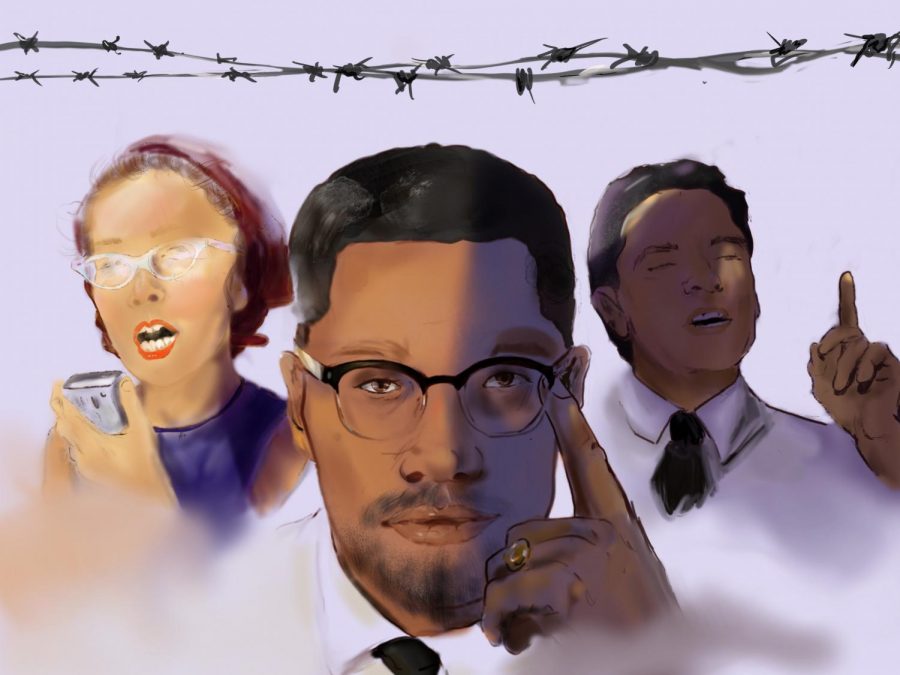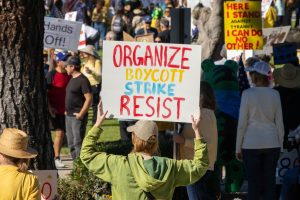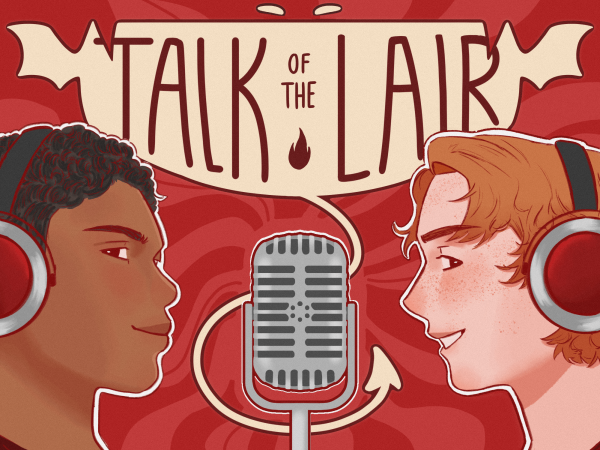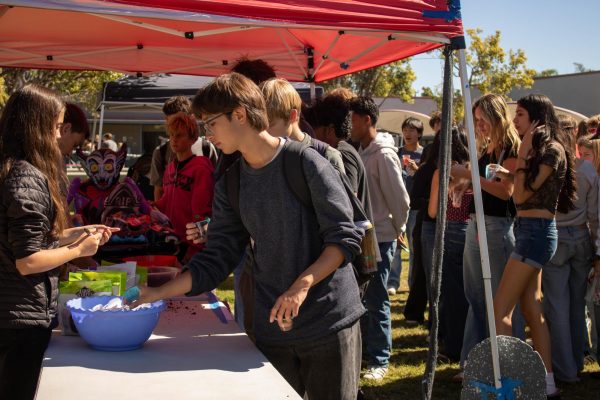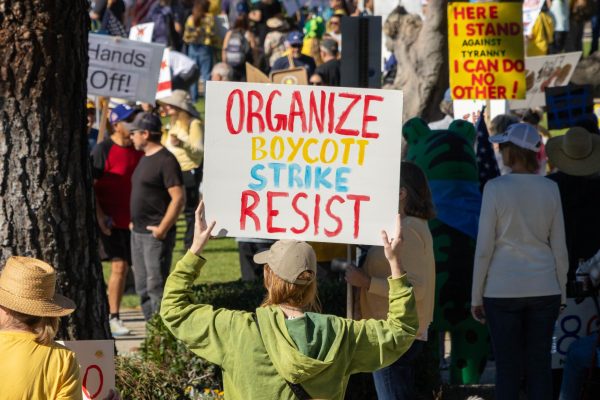May: History of the marginalized
May 29, 2019
Throughout our experiences in history classes in high school, middle school and even primary school, we’ve noticed that the curriculum is centered around the stories of Anglo settlers and European nations. History has always been presented to us primarily from the colonial viewpoint.
The history we learned at home is different than the history we learn in school. Even in cases in which the history of marginalized groups are mentioned, they are often no more than brief excerpts in history textbooks, or they are not required to be covered in the curriculum. Focusing on the narrative of European settlers, Pilgrims, white presidents, conquistadors, and colonizers– rather than of the colonized, the enslaved, the incarcerated, the oppressed– harbors an idea of exclusivity in whose story is more important to include in a textbook or teach in a classroom, which concurrently is detrimental to how students of color view their own histories and themselves.
The Foothill Dragon Press is starting a monthly series called “Histories of the marginalized” to shed light on the stories that are routinely overlooked in our school curriculum.
May 5, 1862: Cinco de Mayo
A common misconception is that Cinco de Mayo is Mexico’s independence day, when in reality it was a battle in the Franco-Mexican war. The Battle of Puebla was surprisingly successful for Mexican troops against invading French forces. The Franco-Mexican war lasted for another five years, but the unlikely defeat of the French during the Battle of Puebla on May 5, 1862 the morale of Mexican soldiers was uplifted and “became the rallying cry of resistance to foreign domination.” It is also highly plausible that the victory on Cinco de Mayo prevented the French from aiding the Confederacy during the United States Civil War.
To this day the victory of the battle is celebrated in Puebla, Mexico and in more recent years in the U.S. as well. Cinco de Mayo gained popularity in the U.S. during the 1960s Chicano civil rights activists they identified with the feeling of “triumph in the face of overwhelming odds and adversity,” similar to what the Mexican soldiers had felt when fighting off the French. College campuses around the nation erupted with people claiming their heritage and exclaiming “Viva la raza – viva Cinco de Mayo!”
Due to over commercialization, Cinco de Mayo has been mostly diminished to a holiday of cultural appropriation and racial stereotyping: people of non-Latino descent wearing sombreros, sarapes, and fake mustaches while eating guacamole, drinking margaritas and screaming their newly learned Spanish cuss word. Though it may not be ill-intentioned, it is always important to make sure that your actions are celebrating the culture and not culturally appropriating it.
May 19, 1921 and 1925: civil rights activists Yuri Kochiyama and Malcolm X are born, respectively
After she and her family were released from incarceration in World War II Japanese internment camps, Yuri Kochiyama began to work as an activist, dedicating six decades of work towards the Civil Rights Movement. Kochiyama was involved in the redress movement for the Japanese who had been incarcerated in internment camps, which culminated in the passage of the Civil Liberties Act of 1988. Kochiyama strived to strengthen the Asian-American movement, linking it to the Black liberation movement and working with other activists, like the Freedom Riders, Angela Davis, and, most notably, Malcolm X.
Malcolm X is one of the better known figureheads of the Civil Rights Movement. His father was murdered by Black Legionaries, a white supremacist group, when he was a young child. Malcolm X converted to the Nation of Islam while he was serving time in prison under charges for larceny. After being released from imprisonment, he worked as a minister for the Nation of Islam, as well as establishing a national newspaper, Muhammad Speaks. Malcolm X embraced the idea of black nationalism and separatism, and is often critiqued in history for his belief in a violent revolution against racism. After a dispute with Elijah Muhammad, Malcolm X left the Nation of Islam and traveled to North Africa and the Middle East, where he found connections between the American Civil Rights movement and the global struggle against colonialism. This inspired Malcolm X to found the Organization of Afro-American Unity in 1964.
On February 21, 1965, Malcolm X was assassinated during one of his rallies. Yuri Kochiyama was in the audience that day, and she had rushed to Malcolm X’s side after he was fatally shot.
May 1943, U.S. government’s enslavement of the Aleuts (Unangax) of the Pribilof Islands
Franklin D. Roosevelt’s Executive Order No. 9066 relocated over 110,000 Japanese-Americans to internment camps after Japan’s bombing of Pearl Harbor. What most people don’t know, however, is that the indigenous people of Alaska were also victims of internment, as well as enslavement, by the U.S. government during World War II.
In 1942, Japan began to invade and occupy Alaska’s Aleutian islands. Japan took 42 Aleuts from the island of Attu and relocated them to Japan as slaves. The U.S. government evacuated Aleuts from their homes and relocated them to internment camps in southeastern Alaska. The U.S. government claimed this was a measure of protection, however, the Aleuts were still kept in internment two years after the Japanese invasion of Alaska was defeated. In addition to that, the internment camps had hostile conditions, and around 80 to 100 of the interned Aleuts had died.
In May 1943, the U.S. government enslaved some of the Aleuts off the Pribilof Islands to harvest seal furs. These furs were later sold by the U.S. to the Fouke Fur Company for 1.5 million dollars in profits.
Formal reparations were not paid to the Aleuts until 1988.
May 9, 1944: Mexican-American activist Willie Velásquez is born
Willie Velásquez was a Mexican-American social activist that politically empowered Latinos in the U.S. during the 1960s and 1970s. He marched alongside Cesar Chavez fighting for farm workers’ rights and he founded the Southwest Voter Registration Education Project in 1974 and co-founded Mexican American Youth Organization (MAYO) in Texas. He used the slogan,“Tu voto es tu voz” (your vote is your voice) to encourage thousands of Latin Americans to vote and he “helped double the number of Latino voters and boost the number of Hispanic elected officials by 94% nationally.” Like many Mexican-Americans at the time, Velásquez came from humble beginnings and he saw the clear disparity in the representation of Latinos in government. He saw how poll taxes and intimidation had kept Latinos out of the ballot box and he saw the path to equality through giving Latino’s a voice in government. Velásquez was bestowed the Presidential Medal of Freedom in 1995, seven years after his death.


